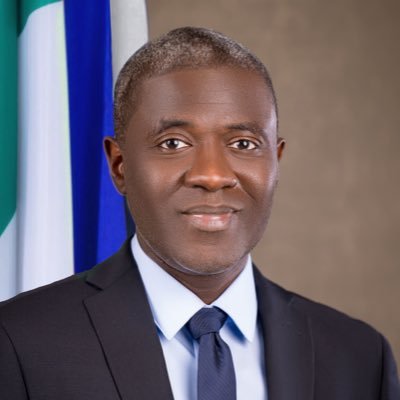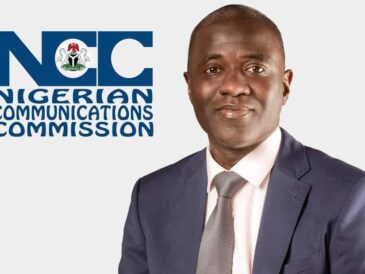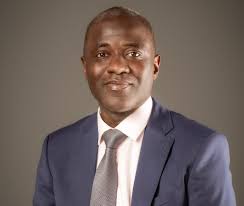By Tajudeen Atitebi
Lagos, Dec. 2, 2024 – Dr. Aminu, Maida, the Chief Executive of the Nigerian Communications Commission (NCC) is steadily repositioning the Nigerian telecommunications sector for improved service delivery.
Since his assumption of office in October 2023, Maida has worked assiduously to implement some projects earmarked by previous chief executives to address some key challenges in the sector.
These challenges include the unbridled usage of mobile phones to perpetrate crimes, lack of transparency among operators, growing unethical practices and poor regulatory environment in the sector.
Within a short period, Maida has successfully implemented these projects.
These include the National Identification Number (NIN) and the Subscriber Identification Module (SIM) linkage project.
Under his watch, the NCC has successfully banned underage children or minors from registering SIM cards and restricted ownership of SIM cards to adults.
The NCC is also checking the proliferation of tariff plans by telecom operators and enforcing a stricter regulatory supervision over the operators.
Oluwole Adeleye, a telecom expert in Lagos, commended Maida for achieving so much within a short timeframe.
He described his commitment to the job as exemplary and urged him to do more to improve services in the sector.
“But we should expect this from him given his background and experience. He is well tutored for the job,’’ Adeleye said.
Festus Okoli, a retired engineer, also commended Maida for his feats, adding that the sector was improving gradually through his efforts.
“I particularly commend the duo of Tijani, the Minister of Communications and Digital Economy and Maida, the NCC chief. They are doing exemplarily well for the sector,” Okoli said.
Maida completed the NIN-SIM linkage project in record time in September 2024.
The project, which took off in 2020, was to check the increasing crime waves associated with use of mobile phones.
The advent of the mobile telephony worsened the general insecurity in the country with reports of mobile phones being used for armed robbery, banditry, Kidnapping and other crimes.
Although there is no statistics to prove any positive correlation between mobile phone usage and the increasing crime rates, discerning Nigerians are aware that mobile phones have become handy tools of criminals.
Prof. Adeolu Akande, the new Chairman of NCC, attested to this when he said: “All over the world, emphasis is being placed on the use of telecommunication as a tool for curbing crime, but unfortunately in Nigeria, we are seeing the opposite where communication has become the major tool of criminality.
“The major reason why kidnappers, armed robbers, bandits use communication facility is that we have problem with using communication to track the identity of Nigerians and residents of Nigeria.
“The key problem is the management of the Subscriber Identity Module (SIM card).
“We found out that there is wrongful registration of subscribers.
“People register SIM cards not with their true identity and when such SIM cards are used for criminality and they are tracked, it leads to wrong people rather than the authentic perpetrators of crimes,’ he said.
But Maida is already doing this with the successful resolution of NIN-SIM linkage process in September 2024.
At the conclusion of the exercise, the NCC announced that more than 40 million SIM cards had been invalidated through the NINI-SIM linkage project as of September 14, 2024.
The invalidated SIM cards were those that could not be linked to any NIN.
Maida has also started implementing the Registration of Telephone Subscribers Regulations introduced by the NCC in 2011.
The regulations are to promote ethical culture in the industry by restricting ownership of SIM cards to adults above the age of 18 years.
The regulations banned underage children or minors from owing SIM cards.
NCC said it took the decision to protect the underage from the potential liabilities and the harmful content associated with unbridled digital exposure.
Under this regulation, parents and guardians could acquire SIMs in their names on behalf of their children and wards, but they would also carry the responsibilities or liabilities arising from the use of such SIMs.
The NCC is also enthroning transparency among telecom operators by streamlining their multiple tariff plans.
Under the new dispensation, there will be only seven tariff plans for each operator.
NCC said the proliferation of tariff plans had confused consumers and made it difficult for them to select the best tariff options for their phones.
It alleged that the four major mobile network operators in the country, MTN, Airtel, Globacom, and 9mobile, are currently offering a combined total of 267 tariff plans for both voice and data services.
MTN, the largest operator, has 159 tariff plans (14 for voice and 145 for data); Airtel offers 68 plans (27 for voice and 41 for data); Globacom provides 38 plans (6 for voice and 32 for data) and 9mobile has 104 plans (7 for voice and 97 for data).
NCC said the simplification of the plans would in turn engender better consumer understanding as well as enhance overall quality of service.
As part of efforts to improve its regulatory framework, the NCC has directed all its licensees to submit their updated contact information before Jan. 9, 2025.
It said the directive was in accordance to the Licensing Regulations 2019 and was essential for effective regulatory oversight and seamless communication with the licensees.
It directed that the information should be submitted through the Commission’s eServices platform at https://eservices.ncc.gov.ng.
Maida promised that the NCC would do its best to improve telecommunication service across and appealed to stakeholders to support the Commission to achieve the objective. (GBN)





